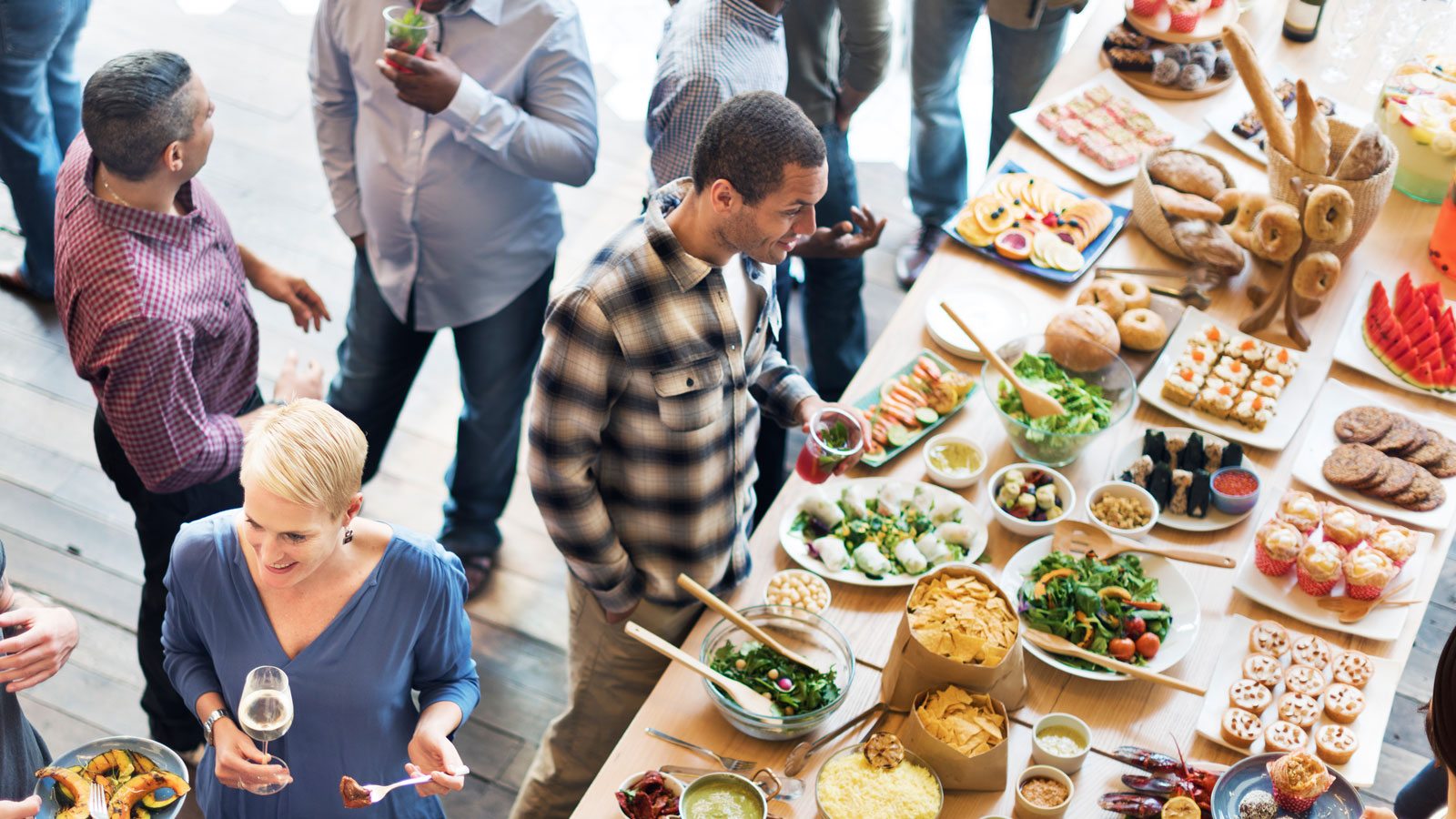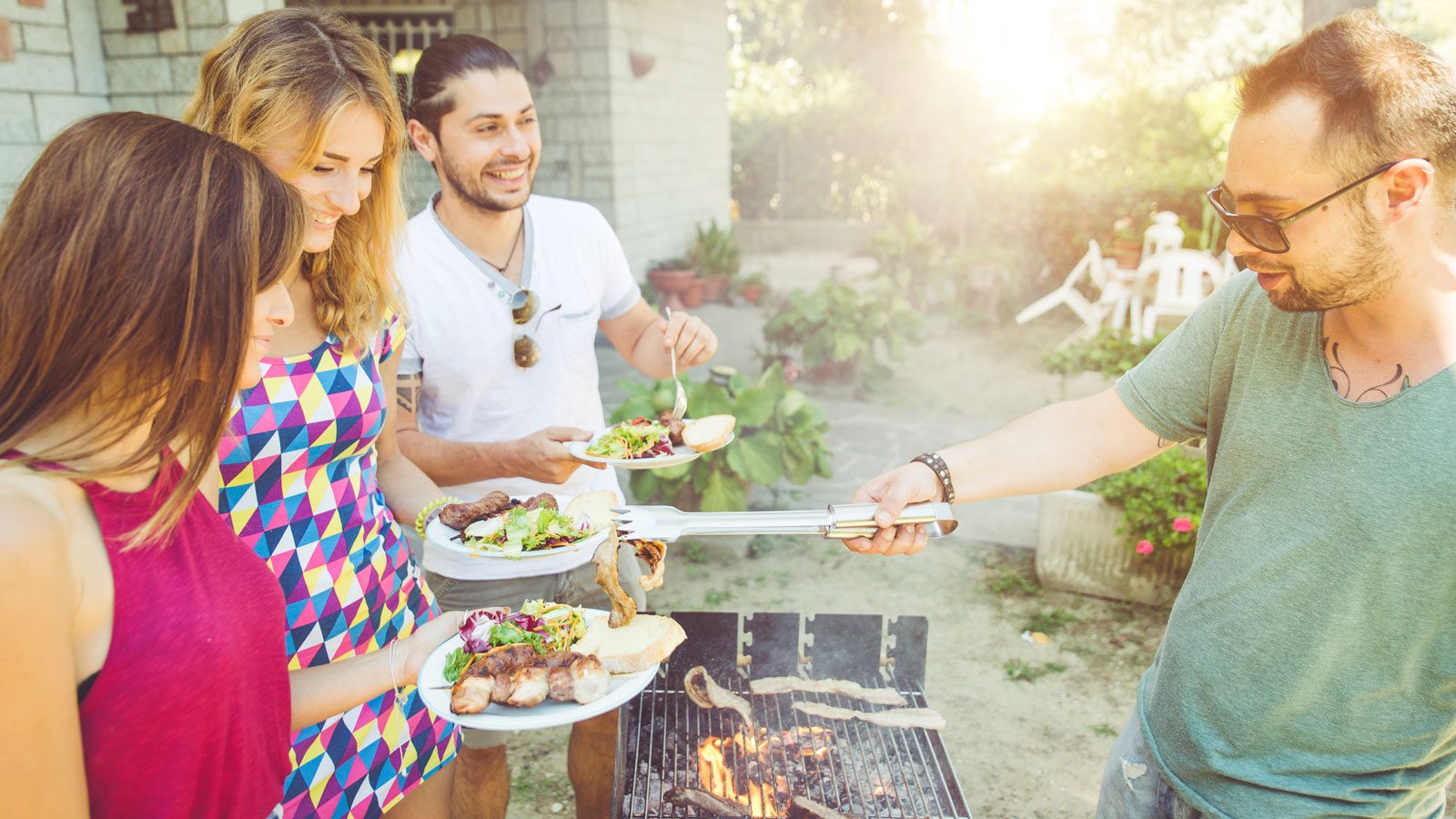Community gatherings offer excellent opportunities to get to know your neighbours, celebrate your ‘hood and have some fun. But like many great events, they also require careful planning and a good deal of legwork. Lay the groundwork for hosting a successful block party by getting organized, educating yourself about your municipality’s relevant rules and regulations, and making sure you’re covered in case of an unforeseen mishap.
START PLANNING
First things first: figure out the basics of your party. Decide details such as what type of event you want to host, how big you want it to be, when it will happen, how it will be funded, and, of course, where you’d like to host it. Just because it’s called a “block party” doesn’t mean it has to be on your block. Venues such as parks, community centres, and private houses and backyards all have their benefits and drawbacks (and individual bylaws).
Creating an organizing team can help lessen the workload, while also providing more opportunities to better get to know your neighbours. Meet with others early on to start planning the party.
Once you’ve determined the scope and budget of your event, it’s time to delegate tasks—such as obtaining permits, organizing food and drink, renting equipment, planning activities and promoting the event. Here you can take advantage of existing resources. Many community associations and municipalities encourage citizens to organize block parties, and may be able to offer advice or equipment rentals. The City of Red Deer, City of Edmonton and Federation of Calgary Communities offer detailed block party planning guides.
APPLY FOR A PERMIT
Many municipalities require permits for block parties, as well as barricades to close streets. Regulations, however, vary from city to city, so be sure to do your research. Most importantly, plan to apply early!
In Edmonton, a block party held in an alley or residential street requires a permit from the city to block off the street, while a parkland permit is required for parties in neighbourhood parks. The permit application must be submitted at least two weeks before your event’s planned date, and must include signatures from neighbours in the party zone.
Calgary also requires a permit for block parties. The application must be submitted at least three weeks prior to the party and include a petition signed by a “significant majority” of the residents on the block.
In Red Deer, a special event permit is needed if the block party is to take place on city property, such as a street or cul-de-sac. Your application, including a list of equipment and weather-contingency plans (among other things), must be submitted two to four months in advance, depending on your event’s intended location.
GET EVENT LIABILITY INSURANCE
In some municipalities (Red Deer, for example), you won’t be able to get a special-event permit without providing proof that you’ve purchased event liability insurance. And even if your city doesn’t explicitly require it, being insured is still a good idea. For a relatively small fee, it can help cover expenses if you’re found legally responsible for any unexpected damages or injuries.
AMA Insurance offers event liability insurance of up to $5 million that can be customized to fit your event’s needs, with options including host liquor liability, medical expense coverage and more.

DETERMINE THE MENU
If it’s your first time planning a community gathering, you’re best to abide by the “keep it simple” mantra when it comes to food and drink for the event. Potlucks or barbecues work well for smaller events, or consider a picnic, where attendees bring food for themselves. Food trucks or professional caterers may suit larger parties and bigger budgets.
Having arranged the eats, don’t forget about where and how they’ll be eaten. Be sure to supply tables and chairs, plates, cutlery and cups, or if you won’t be providing these, make sure partygoers know that they may want to bring their own. Provide receptacles for waste and recycling too.
Be aware that Alberta Health Services has specific rules for food service at community events. Regulations also exist when it comes to alcohol: For instance, it’s not allowed on streets or in public parks. And of course you cannot serve it to anyone under 18. If you’re hosting an event within a facility and serving alcohol, you’ll need to get a Special Event liquor license through the Alberta Gaming and Liquor Control Board.
DON’T FORGET THE ENTERTAINMENT
There are many different options to consider when it comes to entertainment and activities to make your event memorable. Consider your audience—who lives in your neighbourhood?—and plan accordingly. Got a lot of home cooks? Why not host a chili cook-off? Families may enjoy coming together for a talent show. Or impress the sophisticates next door with an outdoor movie screening.
Simple games, such as bingo or a scavenger hunt, are also likely to prove popular. They’re inherently inclusive, and can go a long way to helping neighbours get to know one other.
That said, always bear local noise bylaws in mind (especially if you plan to hire musicians or a DJ), and remember that most municipalities have rules about when street parties must end. Be a good neighbour!
